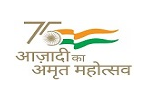About NCCT
History
In 1953, the Government of India jointly with the Reserve Bank of India constituted a Central Committee for Cooperative Training for formulating plans and for organizing and directing arrangements for training of personnel employed or to be employed in the cooperative departments and institutions of the country. In 1962, the Government of India approved the constitution of the Committee for Cooperative Training, and the work relating to Cooperative Training was entrusted to the National Cooperative Union of India (NCUI). In 1976, Committee for Cooperative Training (CCT) was replaced by the National Council for Cooperative Training (NCCT), a body created under bye-law 16A of NCUI. Further, in accordance with the decision of the Central Government, in the year 2018 National Council for Cooperative Training (NCCT) became an autonomous society registered under the Societies Registration Act,1860.
Function
NCCT is responsible for organizing, directing, monitoring and evaluating the arrangements for cooperative training for the personnel working in the cooperative sector in the country. The main objective of the Council is to organize need-based training programmmes and facilitate the process of human resource development for cooperatives in the country. It also conducts research in critical areas of the cooperative movement. The Council has 20 constituent institutes comprising of VAMNICOM, Pune at the National Level, Five Regional Institutes of Cooperative Management at Chandigarh, Bangalore, Kalyani, Gandhinagar, Patna and 14 Institutes of Cooperative Management located at Bhopal, Bhubaneswar, Chennai, Dehradun, Guwahati, Hyderabad, Imphal, Jaipur, Kannur, Lucknow, Madurai, Nagpur, Pune and Thiruvananthapuram.











